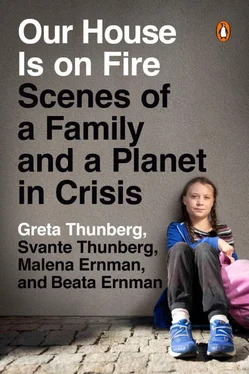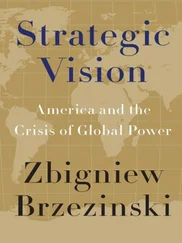Greta Thunberg - Our House Is on Fire - Scenes of a Family and a Planet in Crisis
Здесь есть возможность читать онлайн «Greta Thunberg - Our House Is on Fire - Scenes of a Family and a Planet in Crisis» весь текст электронной книги совершенно бесплатно (целиком полную версию без сокращений). В некоторых случаях можно слушать аудио, скачать через торрент в формате fb2 и присутствует краткое содержание. Город: New York, Год выпуска: 2020, ISBN: 2020, Издательство: Penguin Books, Жанр: Биографии и Мемуары, Публицистика, на английском языке. Описание произведения, (предисловие) а так же отзывы посетителей доступны на портале библиотеки ЛибКат.
- Название:Our House Is on Fire: Scenes of a Family and a Planet in Crisis
- Автор:
- Издательство:Penguin Books
- Жанр:
- Год:2020
- Город:New York
- ISBN:978-0-14313-357-5
- Рейтинг книги:4 / 5. Голосов: 1
-
Избранное:Добавить в избранное
- Отзывы:
-
Ваша оценка:
- 80
- 1
- 2
- 3
- 4
- 5
Our House Is on Fire: Scenes of a Family and a Planet in Crisis: краткое содержание, описание и аннотация
Предлагаем к чтению аннотацию, описание, краткое содержание или предисловие (зависит от того, что написал сам автор книги «Our House Is on Fire: Scenes of a Family and a Planet in Crisis»). Если вы не нашли необходимую информацию о книге — напишите в комментариях, мы постараемся отыскать её.
Our House Is on Fire: Scenes of a Family and a Planet in Crisis — читать онлайн бесплатно полную книгу (весь текст) целиком
Ниже представлен текст книги, разбитый по страницам. Система сохранения места последней прочитанной страницы, позволяет с удобством читать онлайн бесплатно книгу «Our House Is on Fire: Scenes of a Family and a Planet in Crisis», без необходимости каждый раз заново искать на чём Вы остановились. Поставьте закладку, и сможете в любой момент перейти на страницу, на которой закончили чтение.
Интервал:
Закладка:
SCENE 41.
Green Growth
Whenever we hear a politician or a sustainability manager talk about the climate or the environment, they’re saying the same thing – namely that our emissions have to be reduced.
And they must be reduced. By 10–15 per cent per year for a country like Sweden, if we’re going to achieve the Paris Agreement’s 2°C target, while taking into account the aspect of global equity.
The problem is that those emissions that ‘have to be reduced’ – with some isolated exceptions – never are. And because these isolated exceptions only happened as a result of a few global financial crises, then it’s not so strange that anyone who thinks in a slightly shorter time frame than a museum of natural history, never felt that those emissions were worth striving for. Which basically means everyone here on Planet Earth.
So emissions continue to increase, even though we’ve been at levels way over those required to maintain a stable climate for a very long time. The last time we had this quantity of CO 2in the atmosphere the ocean sea level was about twenty metres higher than it is today.
And no, of course it’s not by chance or coincidence that emissions are increasing. It’s a conscious decision and this will continue until we decide that our only overall goal is no longer economic growth, but instead radically reduced emissions: shutting down the oil rigs as fast as possible, keeping the coal and carbon in the ground and adapting ourselves to the very same new reality that the world’s research community has been telling us about for three full decades.
This is not to say that green, sustainable growth is not desirable, possible or welcome.
But right now reduced emissions must be our primary goal, because all our margins have been used up.
SCENE 42.
The Really Boring Part
Svante is sitting by the computer, rubbing his face with his two hands. A rough draft of the book went out for review and now we’re assessing the results. He turns towards Greta.
‘Okay, there are some who say that the reading gets a bit heavy around Scene 41; they think it’s a lot more fun when you and Beata are present. Can something be added there?’
‘Like what?’ Greta asks. She has just selected a few pictures of pigs in slaughterhouses that she hopes can be included in the book along with a discussion about the billions of animals that live out their short lives on a conveyor belt, because we humans have assumed the right to industrialize life itself.
‘Can we write something about you instead?’
‘No,’ she replies curtly. ‘Lots of personal and other stuff comes later. Mum’s burn-out and all the things that people love to read about celebrities. This is a book about the climate and it’s supposed to be boring. I don’t care. The readers will just have to put up with it.’
SCENE 43.
Business as Usual
An information war is being waged about the future conditions for survival in major parts of Planet Earth. Researchers and environmental organizations say one thing; the lobbyists and most of the business community say another.
Thanks to the media’s lack of interest, our future ecological state has been reduced to a political game where it’s word against word, and the most popular wins. And guess which climate and sustainability story sells the best? The one that demands changes or the one that says we can continue shopping and flying for all eternity?
Guess which story most politicians get behind? The problem is that when it comes to the more popular option, they tend to leave out one or two little details. Such as that the crisis is foremost a crisis and not just an opportunity for new financial progress. So the greatest threat that humanity has ever faced ends up drowning in a sea of empty promises about future eternal ‘green’ economic growth.
Here, the roaring sound from melting ice-caps and glaciers remains mute. The stories about how global industrial agriculture risks our future remain untold. And here there is no one talking about how the world’s rainforests are being cut down so ruthlessly that they are now feared to release more CO 2than they absorb.
One of humanity’s most winning characteristics is our capacity to adapt to change. And even if that change is not always welcome, we almost always get to grips with it once we’re faced with critical events.
The planet’s sixth mass extinction, the one that has begun all around us, is a crisis. The melting process in Greenland, the Arctic and Antarctic is a crisis. The fact that we have lived through a time of extremely unusual climatological stability – a stability that enabled the rise of civilization – and that our lifestyles mean that era is now behind us is a crisis. But those stories go unheard because we drown them in a tidal wave of trash.
A new world order is at the door. Astronomical economic interests are at stake: lies, half-truths and creative statistics are shared diligently from every conceivable direction. Emissions are set against emissions, even though all emissions must be reduced dramatically.
Aviation blames cars. Agriculture blames aviation. Motorists blame shipping. Because it’s easier to blame others than to take stock of your own house. And it’s like there’s always someone else who should be doing more than us. There’s always some international legislation or some little detail that we ought to be focusing on instead of taking action. Our very future is at stake and the best we can come up with is a childish ‘Yeah, but what about them! True, our emissions won’t be reduced, but all that business as usual really benefits everything and everyone!’
Everything except future life on earth, of course. But who cares about that?
We have placed our fate in the hands of good intentions. And we have done it in a time when even hospital patients and schoolchildren with functional disorders are supposed to contribute to financial profitability.
What could possibly go wrong?
SCENE 44.
Lip Service
‘At least Donald Trump is honest. He prioritizes new jobs and more money and blows off the Paris Agreement so everyone calls him an extremist. And rightly so, but we’re all doing the exact same thing,’ Greta says.
We’re watching the party leaders’ debate on Swedish television.
Svante goes out with the dogs. He can’t bear to watch, gets too angry.
‘Our emissions are among the highest in the world,’ Greta continues, upset. ‘And now almost all the party leaders are standing there saying that we mustn’t focus on our own emissions but instead help neighbouring countries who are evidently worse than we are. Even though our ecological footprint is so much higher than theirs! And no one’s saying anything?!’
She’s sitting on the couch with the computer on her lap. Outside the window the summer heat is already here, even though the calendar page has only just been turned to the month of May.
‘We’ve got one of the biggest ecological footprints in the would per capita,’ she continues. ‘Should we help others? The USA and Saudi Arabia then? We’re the ones who need help. And the programme hosts aren’t saying anything, because they probably don’t know that we’ve exported our emissions to other countries. No one knows, because no one talks about it. Everyone complains about Trump’s alternative facts but we’re probably even worse than he is, because we fool ourselves into believing that we’re doing good things for the environment.’
The next day the newspapers do a fact check of what was said during the debate. But what is checked is quite different from what we talked about – namely the rate at which the ice is actually melting. Is it really 200,000 m 2of ice that is melting every month or is it possibly a little less? No one is disturbed by the fact that most of the party leaders understate Sweden’s emissions by more than half. Greta reads the article at the breakfast table and comments: ‘One day we miss our emissions targets by miles. The next we’re going to expand all our airports, triple the number of passengers and build climate-smart highways. They say that climate-change deniers are idiots. But everyone is a climate-change denier. Every single one of us.’
Читать дальшеИнтервал:
Закладка:
Похожие книги на «Our House Is on Fire: Scenes of a Family and a Planet in Crisis»
Представляем Вашему вниманию похожие книги на «Our House Is on Fire: Scenes of a Family and a Planet in Crisis» списком для выбора. Мы отобрали схожую по названию и смыслу литературу в надежде предоставить читателям больше вариантов отыскать новые, интересные, ещё непрочитанные произведения.
Обсуждение, отзывы о книге «Our House Is on Fire: Scenes of a Family and a Planet in Crisis» и просто собственные мнения читателей. Оставьте ваши комментарии, напишите, что Вы думаете о произведении, его смысле или главных героях. Укажите что конкретно понравилось, а что нет, и почему Вы так считаете.






![Корнелл Вулрич - Murder at Mother’s Knee [= Something That Happened in Our House]](/books/398097/kornell-vulrich-murder-at-mother-s-knee-somethin-thumb.webp)





